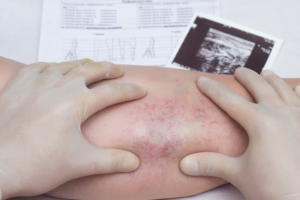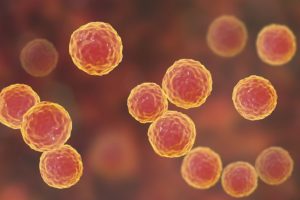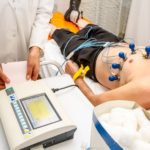 Hypertension has long been known as the silent killer.
Hypertension has long been known as the silent killer.
It earned this nickname because you can have elevated blood pressure for quiet some time and not have any idea about it. A constantly elevated pressure in your circulatory system leads to weakening of the blood vessels, arteries, and the heart muscle itself. It puts you at risk for heart disease and early death.
You cannot tell visually if someone has high blood pressure and many with high numbers feel just fine. It is important, especially as we age, to check our blood pressure regularly.
A normal healthy range for your blood pressure is right around 120/80 or slightly lower. Once you get above 120 to about 129/80 it is considered elevated and should be watched. Stage 1 hypertension ranges from 130-139/80-89 and stage 2 hypertension is 140 or higher/90 or higher. 180/120 or higher is considered a hypertensive crisis and you should call your doctor or go to the ER immediately as you are in the risk range for both heart attack and stroke.
IMMEDIATE ATTENTION SYMPTOMS: If you are in the hypertensive crisis range and you experience chest pain, shortness of breath, back pain, numbness, weakness, difficulty speaking, or vision issues call 911 immediately.
The risks of leaving high blood pressure untreated can include heart disease, stroke, heart attack, heart failure, peripheral artery disease, aortic aneurysms, kidney disease, and vascular dementia.
If you have your blood pressure checked and it is high for the first time, just keep an eye on it. We all have stressful off days or have a day where we drank an espresso or an energy drink, and some experience what is known as “white coat syndrome” where their blood pressure goes up just being in a doctor’s office due to nerves.
If your readings are continually high you will want to talk with your doctor about possible lifestyle and diet changes. If those don’t prove to be enough there are many medications that can easily help control your pressure and give your body a much-needed break.
Talk with us. WWW.TAMPACARDIO.COM. The doctors at Tampa Cardiovascular Associates are here to help you. 813-975-2800.


 Has this past year taken it’s toll on you?
Has this past year taken it’s toll on you?
 Studies reveal that optimistic, happy, glass half full people are more likely to have good heart health as well.
Studies reveal that optimistic, happy, glass half full people are more likely to have good heart health as well.

 Essential hypertension is the blanket term used when no root cause is found for high blood pressure. As many as 95% of all high blood pressure falls into this category.
Essential hypertension is the blanket term used when no root cause is found for high blood pressure. As many as 95% of all high blood pressure falls into this category.
 Varicose and spider veins are unsightly and sometimes embarrassing. It’s easy to consider them just a visual issue and dismiss them. The problem is that they are a medial issue that can become worse over time. The time to stop them is now.
Varicose and spider veins are unsightly and sometimes embarrassing. It’s easy to consider them just a visual issue and dismiss them. The problem is that they are a medial issue that can become worse over time. The time to stop them is now.
 Infective Endocarditis is an infection of the endocardium, by way of bacteria or fungus. It often leads to the onset of symptoms such as fever, anemia, heart murmurs, petechiae, and embolic phenomena.
Infective Endocarditis is an infection of the endocardium, by way of bacteria or fungus. It often leads to the onset of symptoms such as fever, anemia, heart murmurs, petechiae, and embolic phenomena.
 Anxiety disorders affect 40 million adults in the USA.
Anxiety disorders affect 40 million adults in the USA. 
 Pelvic Congestion Syndrome is a chronic medical condition that affects nearly 1/3 of all women at some point during their lifetime.
Pelvic Congestion Syndrome is a chronic medical condition that affects nearly 1/3 of all women at some point during their lifetime.